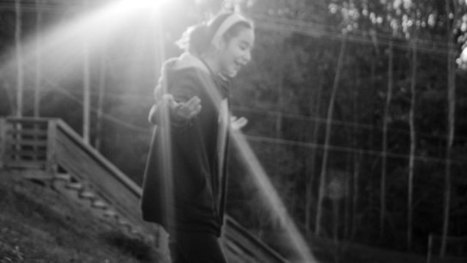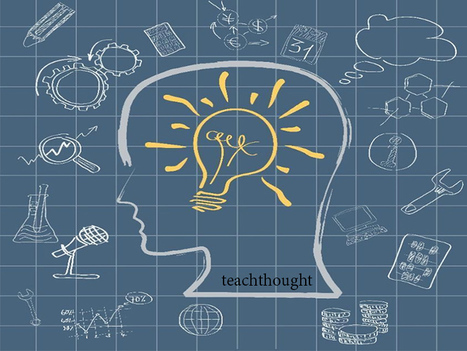Alan November explains how he would use the first five days of school to lay the groundwork for a year of learning that goes far beyond the test.
|
|
Scooped by Beth Dichter |
In this post Alan November suggests that there are four skills we should teach our students the first week of school. Before reading on, what do you think are the most important skills to teach those first days of the year? What do you teach that first day? Most of us would probably answer the procedures and policies, and perhaps the rules. That is not November's advice. He suggests that we do the following.
1. Power Researching - Studies continue to tell us that students do not know how to search well. They tend to Google the answer. Creating questions that cannot be googles is not easy, but it is necessary that our students have "high level research skills.."
2. Meaningful contributions - Can your class come up with an idea that will make the world a better place? If they can, and you help make it happen, they will make the world a better place.
3. Ask them about their passions - Would you consider giving students time throughout the year to work on a project that they are passionate about?
4. Build a learning ecology - Our students need to know that we are also learners. What did you learn this summer? Share this with your students. He states "we have to teach students to learn to learn."
There is much more on these 4 skills in the post. Think about trying to do one or more of these this year.



 Your new post is loading...
Your new post is loading...










Σε αυτό το post ο αρθογράφος δείχνει ότι υπάρχουν τέσσερις δεξιότητες που θα πρέπει να διδάξουμε στους μαθητές μας την πρώτη εβδομάδα του σχολείου. Πριν το διαβάσετε, ποιες νομίζετε ότι είναι οι πιο σημαντικές δεξιότητες για να διδάξετε αυτές τις πρώτες ημέρες του έτους; Τι διδάσκετε εσείς την πρώτη εβδομάδα; Οι περισσότεροι από εμάς θα απαντήσουμε πιθανότατα τις διαδικασίες και πολιτικές, και ίσως και τους κανόνες. Αντί αυτών ο αρθογράφος προτείνει να κάνουμε τα εξής:
1 Η δύναμη της αναζήτησης - Μελέτες συνεχίζουν να μας υπενθυμίζουν ότι οι μαθητές δεν ξέρουν πώς να ψάξουν καλά. Τείνουν να "γκουκγλάρουν" την απάντηση. Η δημιουργία ερωτήσεων που δεν βρίσκονται στη google δεν είναι εύκολο, αλλά είναι απαραίτητο οι μαθητές μας να έχουν «δεξιότητες υψηλού επιπέδου στην έρευνα ..."
2 Σημαίνουσες συνεισφορές - Μπορεί η τάξη μας να καταλήξει σε μια ιδέα που θα κάνει τον κόσμο ένα καλύτερο μέρος; Αν μπορούν και σας βοηθήσουν να συμβεί, θα κάνουν όντως τον κόσμο ένα καλύτερο μέρος.
3. Ρωτήστε τους για τα πάθη τους - Θα το σκεφτόσασταν να δίνατε χρόνο σε μαθητές όλο το χρόνο για να εργαστούν σε ένα πρότζεκτ με το οποίο είναι παθιασμένοι;
4. Δομήστε μια "μαθησιακή οικολογία" - Οι μαθητές μας πρέπει να γνωρίζουν ότι κι εμείς είμαστε επίσης "μαθητές". Τι έμαθες αυτό το καλοκαίρι; Μοιραστείτε το με τους μαθητές σας. "Θα πρέπει να διδάξουμε στους μαθητές να μάθουν πώς να μαθαίνουν».
Υπάρχουν πολύ περισσότερα από αυτές τις 4 δεξιότητες στο άρθρο. Σκεφτείτε προσπαθώντας να κάνετε ένα ή περισσότερα από αυτά φέτος, έτσι για αλλαγή!